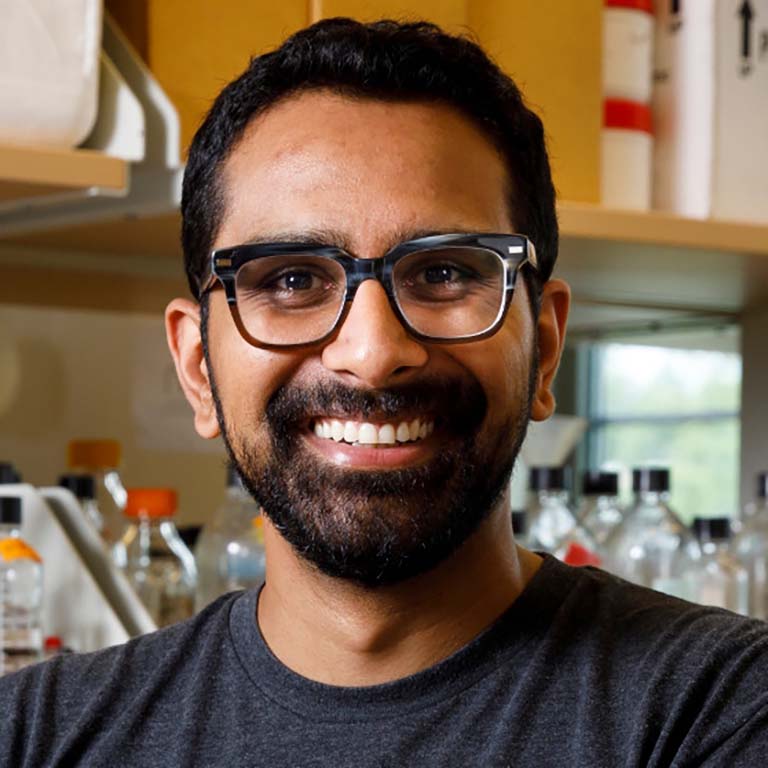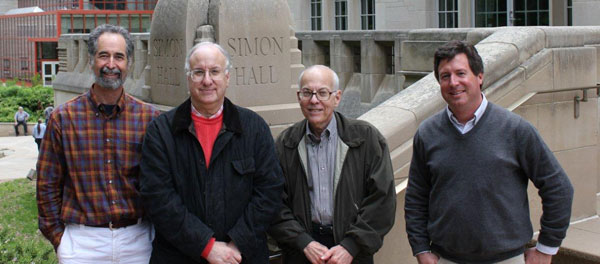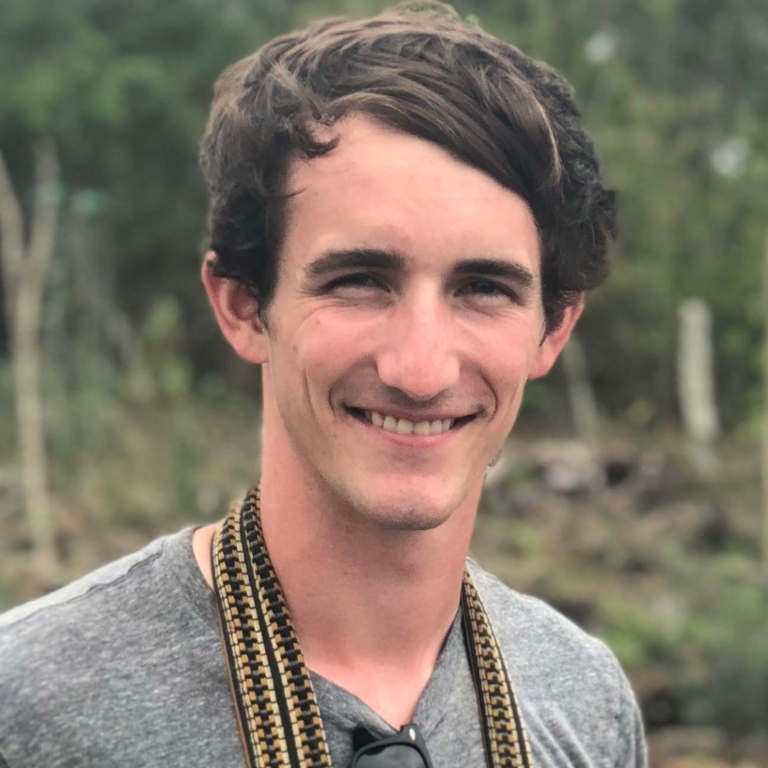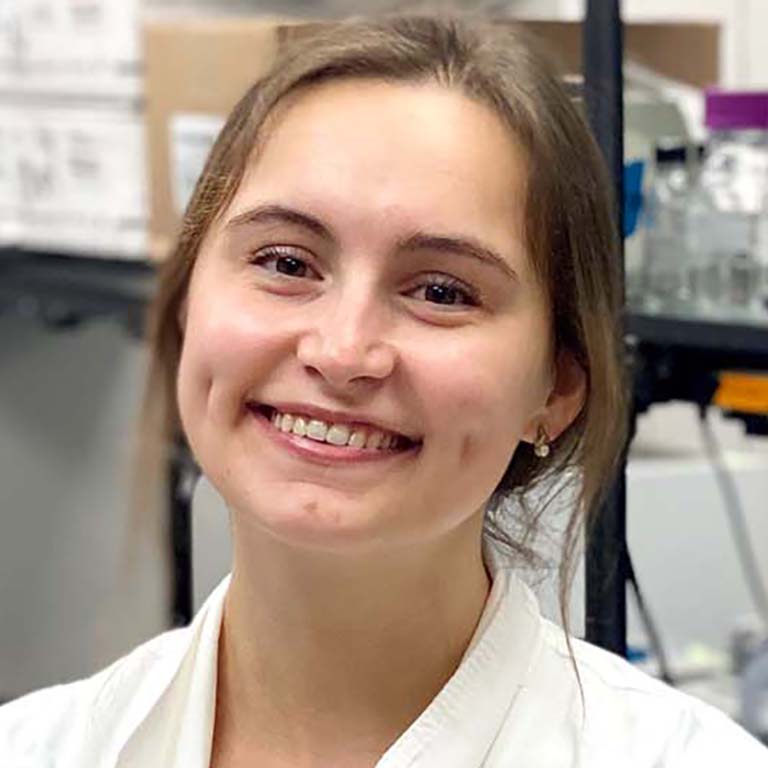Find details about the achievements below and more faculty and student accomplishments in the News + Events section of our website.
Faculty and student achievements
Wednesday, November 30, 2022


Find details about the achievements below and more faculty and student accomplishments in the News + Events section of our website.

Steve Bell has been named a Distinguished Professor—IU's highest academic title for its most outstanding and renowned scholars and researchers.

The American Society for Microbiology has recognized Ankur Dalia with its Award for Early Career Basic Research for his outstanding contributions to microbial sciences.

The American Academy of Arts and Sciences, one of the oldest and most prestigious honorary societies in the U.S., elected Distinguished Professor Lynda Delph to its ranks in its latest class of honorees.

The inaugural Sagalowsky Family Endowed Professorship in Biology was awarded to Heather Hundley, whose research is paving the way to improve targeted treatments for human disease. The professorship was made possible by a generous gift from IU alumnus Howard Sagalowsky (1943-2020) in memory of his parents and in honor of his brother, Joel, also an IU alum.


The American Society of Naturalists has chosen Ellen Ketterson as its newest Honorary Lifetime Member.

Professor Jay Lennon has been elected as a member-at-large for the governing board of the Ecological Society of America.
Jay Lennon was awarded a Humboldt Research Award from the Alexander von Humboldt Foundation—given to "internationally renowned scientists and scholars in recognition of their lifetime's research achievements.”

The Genetics Society of America has honored Distinguished Professor Emeritus Michael Lynch with its Thomas Hunt Morgan Medal.

The American Society for Microbiology has awarded Irene Newton with its 2023 Honorary Diversity Lecturer Award.

John Patton and researchers in his lab will further develop a new technology for a combination oral vaccine to protect infants from viral diarrhea.
John Patton received $293,500 from the foundation to identify features of the rotavirus vaccine strains for modification which will induce higher levels of immunization. Rotavirus strains are the main cause for severe, diarrheal illness in infants and young children across the globe.

NIH has renewed funding for Julia van Kessel's quest to develop resistance-proof drugs to fight infection by targeting the quorum sensing pathway of bacteria.
Julia van Kessel has received funding to study how a pathogen interacts with its environment in a coral host in order to better understand how to help maintain endangered coral reef ecosystems.
Julia van Kessel's team chosen as 1st-place winner of inaugural IU Idea to Startup Pitch Competition.
All the buzz! To protect and grow honey bee populations, undergraduate Jillian Lewis, a member of Irene Newton's lab, is studying how the bacteria commonly found on and around bees can benefit them.
The USDA National Institute of Food and Agriculture awarded Agriculture and Food Research Initiative Predoctoral Fellowships to graduate students Matt Gibson, Allie Margets, and Delaney Miller to fund their projects to solve emerging agricultural challenges. The NIFA initiative seeks to develop new scientists and professionals to enter research, education, and/or extension fields within the food and agricultural sciences in the private sector, government, or academia.

Matt Gibson (who completed his Ph.D. earlier this year) used his award to continue his study of the coastal-inland adaptation genetics of wild tomatoes to establish groundwork to build a better tomato.

Allie Margets is investigating the molecular mechanisms of soybean cyst nematode effector proteins.

Delaney Miller seeks to identify symbiont distribution and natural variance in antifungal production as she explores genomics of a honey bee defensive symbiont.

The National Institutes of Health has presented Emily Erdmann with its NRSA Individual Predoctoral Fellowship to further her research on ADAR function in the germline.

In a recent paper published in PNAS, lead author Zhongqing Ren and colleagues identify how the plant pathogen Agrobacterium tumefaciens organizes and segregates its genome.
Ph.D. candidate Lana Bolin is part of a team studying how farmers' decisions affect the microbes in their soils and what that means for plant resilience to drought.
Forty-three (43) graduate students completed their degrees between September 2021 and August 2022.
Graduate degrees:
12 Ph.D.s in Evolution, Ecology, and Behavior
13 Ph.D.s in Genome, Cell, and Developmental Biology
7 Ph.D.s in Microbiology
6 M.S. degrees in Biotechnology
2 M.S. degrees in Evolution, Ecology, and Behavior
1 M.S. degree in Genome, Cell, and Developmental Biology
2 M.S. degrees in Microbiology
A total of 273 undergraduates accepted their degrees during December 2021, May 2022, and August 2022 graduation.
Undergraduate degrees/majors included:
9 double majors
16 dual degrees (two B.S. degrees or a B.S. degree and a B.A. degree)
1 triple degree
5 degrees with Department of Biology honors
Congratulations to our graduates!
